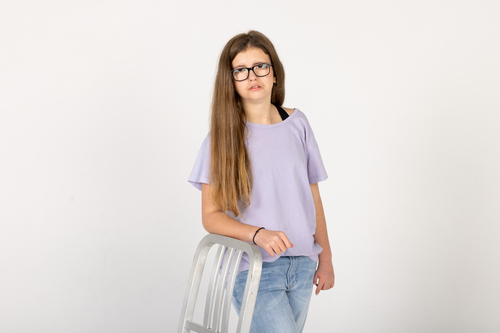Genetic Conditions and Rare Disorders
Unlocking the mysteries of our unique human code
Why is it a problem?
Why is it a problem?
First things first – what exactly are genes?
Every human body is made of billions of cells – the very small units that make up all living things (so small you can only see them with a very strong microscope). Genes contain the information that controls how you grow, develop and function. And they determine most of your physical characteristics, including your gender, blood type, eye colour and height. Many health conditions and diseases are also carried in our genes.
What is a genetic condition?
A genetic condition typically occurs when you inherit an altered gene from your parents that increases your risk of developing that particular condition
Are all genetic conditions inherited?
No, some genetic changes occur randomly before you are born – so not all genetic conditions are passed down from your parents. Environmental or social factors can also cause or contribute to a genetic condition, e.g. being exposed to certain chemicals or radiation.
The New Zealand situation
The most common life threatening genetic condition affecting New Zealand children is Cystic Fibrosis (CF) – a genetically inherited condition (some people are born with it) mainly affecting the lungs and digestive system.
Why research matters?
27% of unexplained deaths in young people result from a previously undiagnosed genetic condition. And this knowledge is critical to other family members who may have the same condition.
Did you know?
27% of unexplained deaths in young people result from a previously undiagnosed genetic condition.
What are we doing to help?
Here are just some of the research projects we are funding to help progress scientific discovery – and improve, extend and save the lives of Kiwi kids living with genetic conditions.
Testing a new drug to improve muscle function for
those with muscular dystrophy
Cystinosis is a rare genetic disorder that affects every cell in the human body. Currently, children with cystinosis have only one treatment option – a medication (cysteamine) that is challenging to take and has significant side effects. But researchers from the University of Auckland might have the solution. Dr Hollywood has teamed up with Prof Herbie Newell from the University of Sunderland and will be testing a new drug called CF10, to see if it can reduce cystine and preserve kidney function more effectively than cysteamine does without the horrible side-effects.
Research into a rare genetic disorder – a novel microcephaly gene which reduces brain size in children
Microcephaly is a rare developmental disorder resulting in reduced brain size. Many of the genes involved affect the ability of brain cells to grow and divide. Dr Bicknell and her team have used zebrafish as an animal model of disease to prove that a New Zealand family have a unique disorder which has not been recorded previously. This study will explore how genetic alterations to the newly identified gene disrupts brain development in this family and others like it.
A study of whether a molecule called Nox4 can reduce calcium leak and improve muscle function for those with Duchene muscular dystrophy
Despite being first identified in 1868, Duchene muscular dystrophy leads to progressive weakness and eventual cardiac and respiratory failure, and still has no readily available cure. This study will test a drug which is already in clinical trials for other diseases to target calcium leak in dystrophy, and therefore prevent damage and inflammation in the muscle.

Mela was born on the 18th of August 2009. After an uncomplicated pregnancy and labour, Mela’s parents were surprised to realise their baby was struggling for breath. Mela was quickly taken to the SCBU where she was diagnosed with an incredibly rare condition called Moebius syndrome.
Moebius syndrome is a rare neurological condition that primarily affects the muscles that control facial expression and eye movement. This meant that Mela’s face was paralysed and that her eating and breathing were affected.
Mela’s mum recalls, “We pretty much moved into Starship when Mela was about 4 weeks old. She had a tracheostomy placed and a mic-key button to help with breathing and eating. We had MANY close calls, intensive care stays and ambulance rides as the amazing teams at Starship fought to keep her alive.
“Mela’s first year was definitely the hardest. We didn’t know what we were in for and what the end result would be. It was incredibly heart breaking but devastating to watch your child have multiple operations and procedures to just try to stabilise her.”
A resilient and courageous child, Mela didn’t give up a fight. She started to gain weight and thrive, and is now doing amazingly well. In 2018, Mela went ahead with a very specialised surgery to give her a ‘smile’. This involved taking a large muscle out of her leg and implanting it in her face.
Mela has a little sister called Boe who she is very close to. Their family live each moment to the full.
“As a family, we have truly learnt what is important in life and what really matters. Life is short. Live each moment. Go on the holidays, drink the champagne. The special occasion is being here today,” says Mela’s Mum.
3 Active Genetic Conditions and Rare Disorders projects
-
Professor S. RobertsonGenomic Medicine for WhānauAwarded $600,000Genetic Conditions and Rare Disorders
-
Dr A. LindsayTrialling a treatment for Duchenne muscular dystrophyAwarded $119,932Genetic Conditions and Rare Disorders
-
Dr N. MitchellHelping the development of gene therapy for all forms of Batten diseaseAwarded $81,080Genetic Conditions and Rare Disorders

Help fund researchers like Louise.
Every cent helps, no matter how small.
Big Research
We are currently supporting over $16 million of child health research projects.
Learn more-
Preterm Health
4 Active projects$464.8K -
Childhood Cancers
2 Active projects$3.2M -
Maternal and Infant Conditions
4 Active projects$751.4K -
Rheumatic Heart Disease
6 Active projects$2.8M -
Childhood Development and Learning Difficulties
2 Active projects$228K -
Neurological and Neurodevelopmental Disorders
3 Active projects$749.2K -
Endocrinology, Metabolism & Nutrition
1 Active project$125K -
Mental Health and Wellbeing
8 Active projects$1.2M -
Genetic Conditions and Rare Disorders
3 Active projects$801K -
Respiratory Conditions
5 Active projects$862.6K -
Infectious Disease
2 Active projects$219.7K -
Gastrointestinal Conditions
1 Active project$600K



